H. C. G. Moule Collection (7 vols.)
Digital Logos Edition
Overview
The H. C. G. Moule Collection brings together seven volumes of commentary on the Pauline epistles. Moule was the first principal at Ridley Hall Theological College, Cambridge, as well as the Norrisian Professor of Divinity. His writings are informative, yet accessible, making them useful both to scholars and laity. The works included in this collection contain verse-by-verse exegesis on Romans, Ephesians, Philippians, Colossians, and Philemon. Moule also includes practical lessons for daily living, gleaned from the epistles. Each of his works provides notes, indexes, and appendices to make these studies even more valuable.
In the Logos editions, these valuable volumes are enhanced by amazing functionality. Scripture citations link directly to English translations, and important terms link to dictionaries, encyclopedias, and a wealth of other resources in your digital library. Perform powerful searches to find exactly what you’re looking for. Take the discussion with you using tablet and mobile apps. With Logos Bible Software, the most efficient and comprehensive research tools are in one place, so you get the most out of your study.
This title is included in the following collections
You can save when you purchase this product as part of a collection.
Logos 9 Lutheran Platinum Lega...
$1,499.99$1,499.99Logos 9 Lutheran Diamond Legac...
$2,999.99$2,999.99Complete Classic Commentary Co...
$17,553.16$3,699.99Logos 6 Portfolio Legacy Libra...
$4,749.99$4,749.99
- $4,749.99
- $11,399.99
- $11,399.99
- $11,399.99
- $21,749.99
- $24,999.99

- Verse-by-verse exegesis on various books of the Bible
- Practical lessons for daily living
- Helpful notes, indexes, and appendices
- Title: H. C. G. Moule Collection
- Author: H. C. G. Moule
- Volumes: 7
- Pages: 1,732
- The Epistle to the Romans
- Cambridge Greek Testament for Schools and Colleges: Philippians
- The Cambridge Bible for Schools and Colleges: Romans
- The Cambridge Bible for Schools and Colleges: Ephesians
- The Cambridge Bible for Schools and Colleges: Philippians
- The Cambridge Bible for Schools and Colleges: Colossians & Philemon
- Colossian and Philemon Studies: Lessons in Faith and Holiness
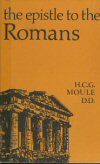
The Epistle to the Romans is an invaluable standard commentary, a true book of devotion. The late H. C. G. Moule, former dean of Trinity College, succeeds in making this difficult epistle luminous while demonstrating its practical lessons. This verse-by-verse commentary includes Moule’s own translation of the text with an emphasis on an explanation of details. He also puts into context the writings of Paul by vividly describing the man and the time and place in which he lived.
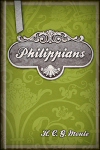
Moule’s introduction to the Greek text of Philippians includes chapters on Paul’s connection with the town of Philippi, the date and occasion of the Epistle, and its authenticity. Moule includes a fascinating comparison of Paul’s Epistle and Polycarp’s Epistle to the Philippians, providing insightful observations about their language and style.
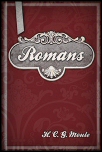
After sketching the life of one of the New Testament’s most zealous missionaries—the Apostle Paul—Moule then discusses the date, authenticity, and language of the letter, as well as questions regarding the last few chapters of Romans. Moule lays out the theology of Romans in clear, comprehensive notes, ending with an index to the introduction, notes, and appendices.
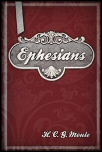
H. C. G. Moule’s commentary on Ephesians provides a unique look at this letter from Paul to the church at Ephesus. Noting parallels between Ephesians and Colossians, this volume also discusses the authenticity of this epistle and the historical background of the Ephesians. The commentary contained in this resource elucidates the truths contained in Ephesians, in concise yet astute exegesis.
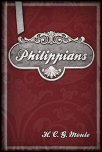
This focused commentary opens with a geographic description of the location of Philippi, then launching into an introductory description of the date, occasion, and authenticity of the epistle. Verse-by-verse commentary follows, in a meticulous scrutiny of the book of Philippians.
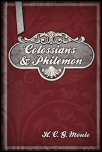
This volume is divided into two distinct sections, covering first Colossians and then Philemon. Before the verse-by-verse commentary on each epistle, facts and background information are laid out in a detailed manner. Included is an essay entitled “Slavery, and the Attitude of Christianity Towards It.”
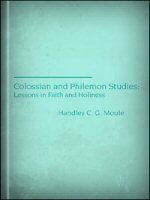
Known for his other commentaries on the the Pauline Epistles, Moule’s Colossian and Philemon Studies: Lessons in Faith and Holiness is an exegetical, practical, and pastoral commentary on Paul’s letters to the Colossians and Philemon. Moule offers his comments on the English text of these Pauline letters, but also interacts with the Greek text at points when needed to further highlight important aspects from the text of Colossians and Philemon.
H. C. G. Moule (1841–1920) succeeded B. F. Westcott as the bishop of Durham. Although a profound scholar, he could speak and write for ordinary people.
Dorchester was educated at home prior to attending university at Cambridge. He was ordained in 1867 and was curate at Fordington before being appointed as dean of Trinity College at Cambridge (1873–1876). During his tenure at Cambridge, he became first principal of Ridley Hall Theological College in 1881 and Norrisian Professor of Divinity in 1899.
In 1898, he became honorary chaplain to Queen Victoria and in 1900 represented evangelicals at the Round Table Conference on Holy Communion. Moule later chaired the missionary section of the Pan-Anglican Congress and was closely associated with the Keswick Convention.
Bishop Moule’s works include expositions and commentaries on nearly all the Epistles, as well as books on devotion. He is the author of the popular Doctrine of Man, Outlines of Christian Doctrine (a down-to-earth work on theology), and contributed to The Fundamentals (4 vols.).